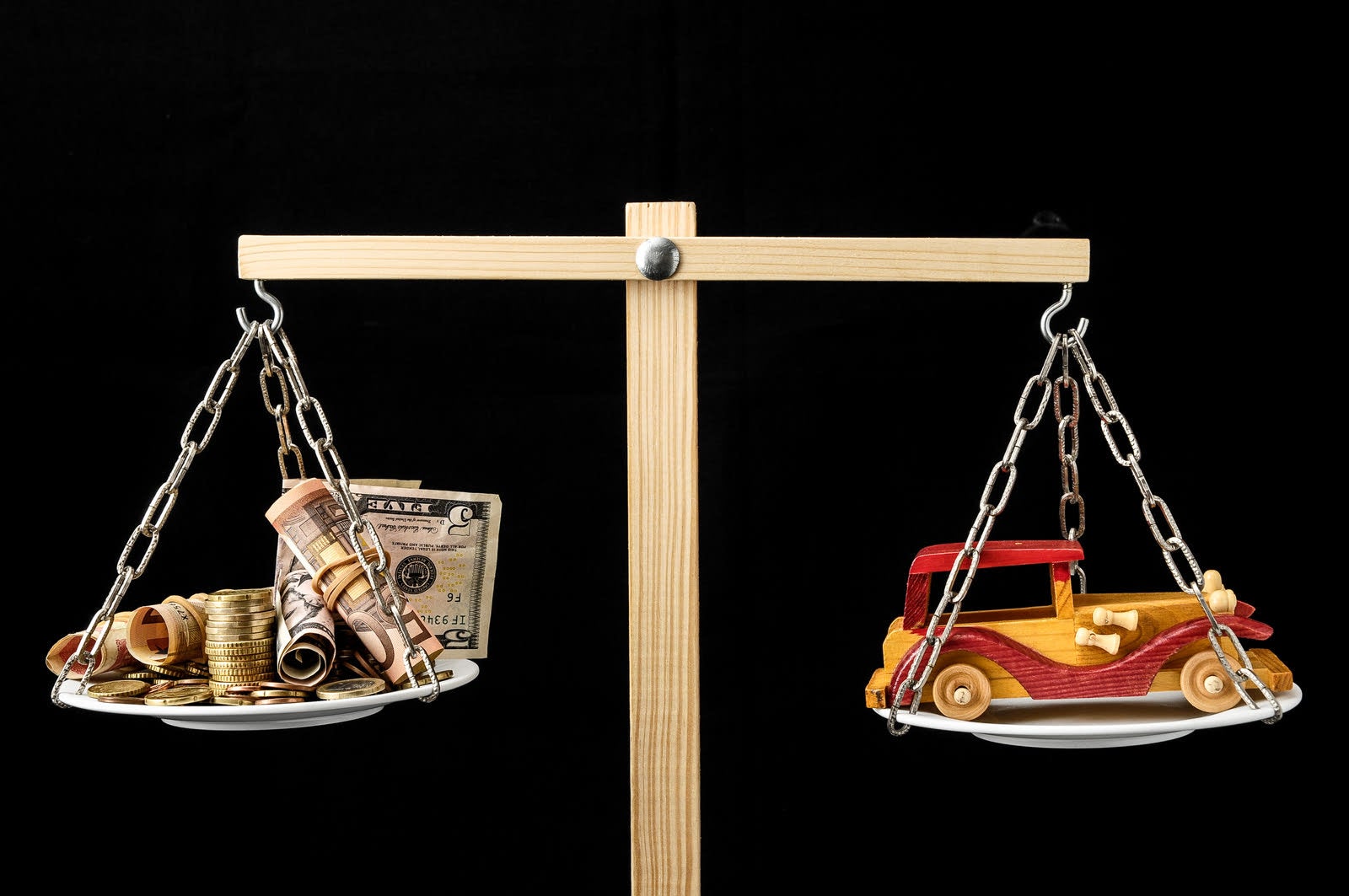Finding the best way to finance a used car with an ideal auto loan for your credit score is a tricky business. The higher the credit score, the lower your finance rate – and vice versa. However, exceptions to this rule do exist.
CarGurus can help shoppers secure an auto loan before they even leave the comfort of their home. Receive a real, personalized rate in just minutes, and with no impact to your credit score.
Used auto loans are widely available and can be used for a dealer purchase or a private party purchase.
Now, let's see what you need to finance a used car, like down payments, interest rates, and good terms.
How To Get Financing For A Used Car
- Set Your Budget First
- Figure Out How Long You Want Your Loan to Be
- Where Should You Look for a Used Car Loan?

Set Your Budget First
Before buying a used car with financing, make sure to set a budget and check your credit score. Your credit history will have a strong influence on your ability to secure competitive rates and a low car payment. Many credit cards provide free FICO score reports. However, these reports often display higher scores compared to Equifax, TransUnion, and Experian.
These three agencies are the largest credit reporting agencies. You can get free credit score reports on websites like Credit Karma. These reports may also recommend lenders for loans. Consider their suggestions during your used car search when looking for a loan.
Typically, your scores from all three bureaus will be close in number. A used car dealer will review these scores during a "hard" credit check. Having many dealerships check your credit can lower your score. Stick to one dealership for a credit check when looking for a used car.
Here’s what you need to know about credit scores:
Any score over 800 is excellent credit to finance a car. If you haven't borrowed too much money lately, credit approval will be a snap, opening up eligibility for the lowest interest rates from any lender for your new car loan.
Having a good credit score of 700 or above can assist you in obtaining a favorable loan. This personal loan may come with low interest rates, small down payments, and long repayment terms. These terms can keep your monthly payments affordable.
Consider a score in the 600s to be workable. Here, you’ll likely qualify for a loan, but you will have higher interest rates that will wind up costing you more money overall. Anything below 600 will need some finagling by your lender.
Consider purchasing a more affordable and reliable car that you can afford to improve your credit score. Avoid buying a fancy car that may end up being more expensive in the long term. Consider the car as a tool to fix your credit. Keep in mind that if your credit score dramatically improves, you might be able to refinance your loan at a later date and earn better interest rates and financing terms.
There are numerous auto loan calculators available online that will provide you estimated loan payments depending on a variety of factors the purchase price, down payment, loan term, loan amount, trade-in value and credit score. If you are purchasing a new vehicle, expect additional fees that will drive up the cost relative to a used vehicle.

Figure Out How Long You Want Your Loan to Be
Lenders typically offer auto loans between 24 and 60 months, though some may offer auto financing deals with terms as long as 96 months.
The upside to a longer loan is lower monthly payments, but these do come at a cost. With a longer loan, you'll probably have a higher interest rate. By the time you finish paying for the car, it might not be worth as much.
Loans with shorter terms mean you pay more each month. However, lower interest rates mean you pay less to the lender overall. Borrowing money becomes cheaper with lower interest rates. Keep an eye out for other disclosures that will affect the loan interest rates.

Where Should You Look for a Used Car Loan?
You can get pre-qualified to determine real rates with no impact to your credit score here.
Car dealers typically work with a variety of lenders. They can do much of the shopping for you. Be aware that dealers will receive a commission for signing you up for a used car loan. Their rates may be good, but you may be able to find better rates on your own.
To purchase a newer used car, you could consider financing it through the same company that manufactured it. This means you can get a loan from the car manufacturer to purchase the vehicle. Financing through the manufacturer might get you some pretty good rates and terms.
This option is worth considering when looking for financing for your new car. Typically, the car will need to be a certified pre-owned model. Often, automakers will have subsidized low-interest rates on these cars.
That said, it pays to cross-shop on your own for your used car purchase. The bank or credit union you currently use may have special auto financing promotions available. A bank where you deposit your paycheck and pay your bills will know your financial history, too. Your home bank likely offers competitive auto loan rates, with most offering easy online application and rate discounts for having a vehicle loan at the same place you keep your checking account and savings account. Other benefits include the ability to manage payments in your online banking portal, as well as a fast application process.
You don’t have to use your home bank, though. Feel free to shop around different banks and credit unions for more favorable loan offers and annual percentage rates (APR). However, expect some restrictions on model year, month term and the type of dealer that you can purchase from.
There are other loan options. You don't need to go to a bank in person and the lender you choose does not have to be close to where you live. Financial companies that don't have a branch near you can still handle your loan application online. There is no need to visit a physical location for loan approval. You’ll wind up managing your loan online or on a mobile app, anyway. And as we mentioned before, a refinance loan is also possible at a later date through the same institution.
There are other loan types you can use to make your vehicle purchase. If you have a Home Equity Line of Credit (HELOC) on your home, you can use it instead of getting a used car loan. Lenders usually give you lower interest rates, but keep in mind that they’ll use your house as collateral.
An unsecured installment loan doesn’t use your personal property as collateral. You’ll need good credit to qualify for one since the lender has a higher risk with no return. Defaulting on such a loan will likely land you in court, so be careful about setting your budget.
No matter which financing option you go for, arriving at the dealership with prequalification will tell the dealer that not only are you a serious buyer, but that they will have to work to earn your finance business. Without that pre-approval, you will only have one finance option.


